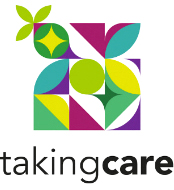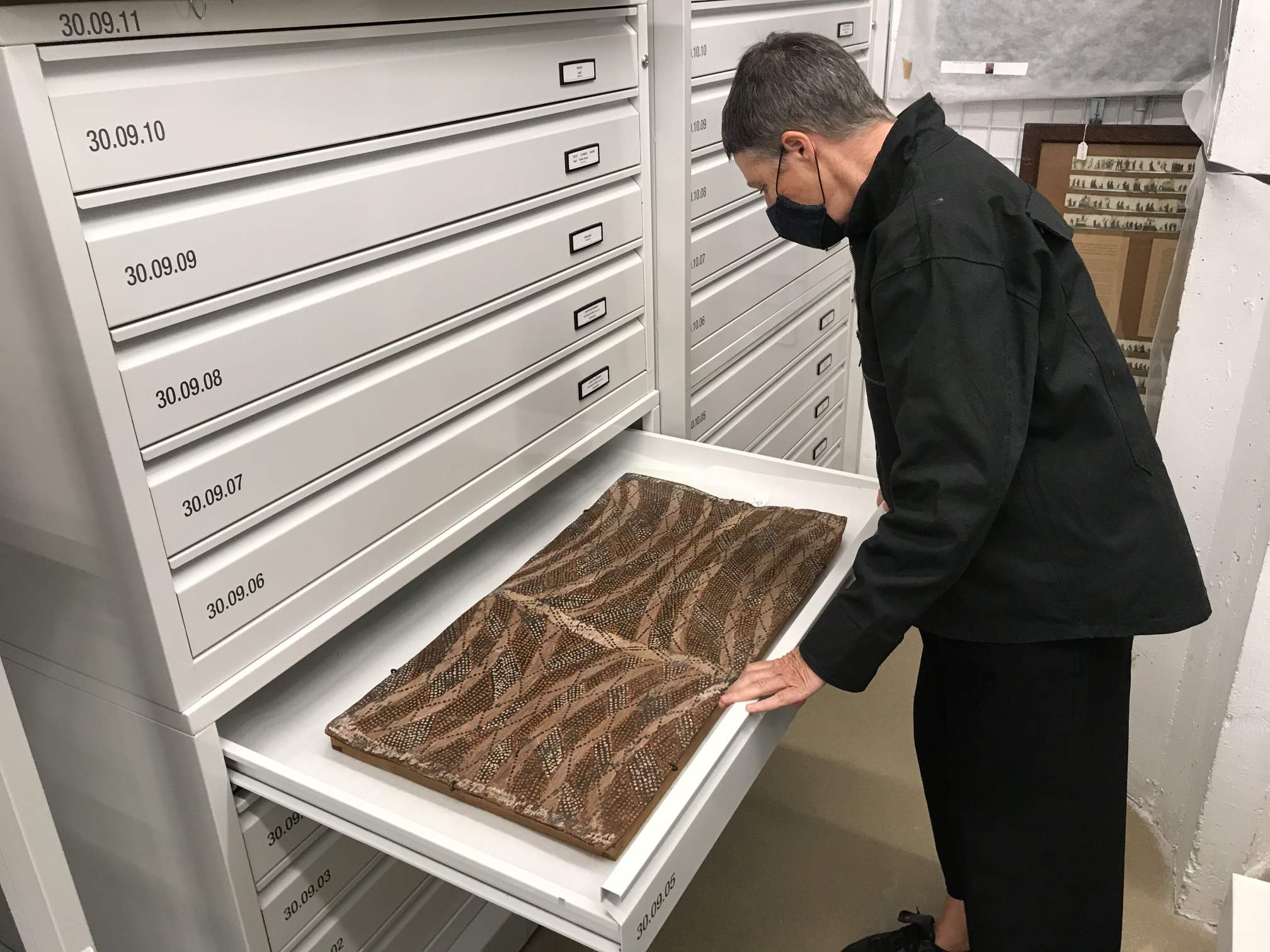Taking Care (2019 - 2023)
The Museu Etnològic i de Cultures del Món is one of the 14 ethnographic and world cultures museums to be a member of the Taking Care – Ethnographic and World Cultures Museums as Spaces of Care, project, co-funded by the European Commission as part of the Creative Europe programme, which aims to foster cross-border cultural cooperation in the culture and visual arts sector.
This is a 4-year project (2019-2023), during which the museum is taking part in activities organised by itself and other members of the network, including conferences, workshops, innovative exhibitions, artist residencies and research projects, among other things.


Members
Welmuseum Wien, Vienna, coordination
National Museum of World Cultures, Leiden/Amsterdam/Berg-en-Dal
The Royal Museum for Central Africa, Tervuren
Musée des Civilisations de l’Europe et de la Méditerranée, Marseilles
Statens museer för världskultur, Stockholm/Gothenburg
Linden-Museum, Stuttgart
Museo delle Civiltà - Museo Preistorico Etnografico Luigi Pigorini, Rome
Museum of Archaeology and Anthropology, University of Cambridge
Slovenski Etnografski Muzej, Ljubljana
Museu Etnològic i de Cultures del Món, Barcelona Institute of Culture
Culture Lab, Tervuren
Nationalmuseet, Copenhagen
MARKK - Museum am Rothenbaum. Kulturen und Künste der Welt, Hamburg
Pitt Rivers Museum Oxford, University of Oxford
OBJECTIVES, CONTEXT AND INITIATIVES
The Taking Care project places ethnographic and world cultures museums at the centre of research into possible strategies for dealing with concerns about the present and future of the planet and the questioning of pluralist democracies. These museums, with their histories, their collections and practices developed over decades through collaborative and critical reflection, speak directly about these urgent, definitive 21st century challenges: planetary instability, inequality and the future of multiculturalism.
While part of the fundamental work of these museums (ICOM) is the conservation of their exceptionally rich and diverse collections of art and the everyday cultural materials of peoples from around the world, they are also places for meeting others, social innovation and experimentation, knowledge and skills, where it is possible to (re)discover, co-create and publicly share ecological knowledge, including various ways of knowing and living in and with the world.
Through a series of work programmes organised into nine themes, the project aims to achieve the following objectives:
- To include questions of care in the agendas of ethnographic and world cultures museums.
- To promote world cultures museums as more active places for providing information about environmental change, the instability of the planet and the impact that this has on all of us, and especially on some of the vulnerable human and non-human beings on Planet Earth.
- To develop new conservation methodologies that go beyond the limited focus on the integrity of the objects and also cares for the people that made them and their future, by means of collaboration with experts from the community of origin.
- To inspire the public so that they adopt more responsible practices in relation to caring for the world we all share, including a feeling of responsibility for the lives of other living beings in the world.
- To foster creative solutions for a more sustainable use of the Earth's resources, with the aim of helping to build more equitable futures.
- To promote the role of museums as organisations responsible for fostering ethics in caring for cultures, so that they can continue to actively contribute to cultural survival and revival, as well as cultural and artistic sustainability.
- To promote museums as places where theories based on the instability of the world and the anthropocene epoch can be developed.
- To tackle questions relating to the social and cultural consequences of colonialism and the effect that it had on the unequal distribution of resources, including heritage resources.
- To share with larger audiences the complex interrelations and the value of the collections, by means of innovative digital tools, such as games and other educational or exhibition formats.
Therefore, the aim of the Taking Care project is to transform ethnographic and world cultures museums into authentic care centres for a Europe more in need than ever.
PROJECTS
Workshop: The ecological sustainability of the city
Museu Etnològic i de Cultures del Món. Montcada's Venue. 10-11 November 2021
Cities are often only recognized as urban environments: architecture, infrastructure and population. But they are complex ecological systems, where many different people live within a high concentration of diversity. Today more and more people are living in cities, with the projection that this will only increase in the coming decades. This increase in city dwelling challenges the two issues that this project addresses. Indeed, while the city is understood as emancipatory for diverse citizens and non-citizens, it is also the site where anxieties about plurality are often most evident, with dystopian images of cities as corrupting or challenging national identity or values, including through the presence of migrants. Similarly, the city is often imagined in ecological dystopian terms. Tying these two issues together, scholars have long concluded that environmental injustices are normally felt most by the most precarious in the city, the urban poor, or those with the most vulnerable or questioned citizenship status.
Importantly, many ethnographic and world cultures museums are located in cities. What role can they play in fashioning more hopeful and plural forms of living? How can they, with their collections full of diversity in knowledge and lifeworlds help us develop more sustainable and liveable environments? How can we bring the ecological knowledge embedded in the collections together with ecological knowledge diverse city dwellers to solve the problems that living together in cities creates? What role can our museums play in this ecology?
TAKING CARE WORKSHOP
THE ECOLOGICAL SUSTAINABILITY OF THE CITY
BARCELONA, 10-11 NOVEMBER 2021
WEDNESDAY 10th NOVEMBER
15:00 Welcome (Director of Cultural Heritage. Barcelona City Council)
Topic 1: Ecological Sustainability
15:15 Keynote speaker: Xavier Casanovas. Professor of the Ethos Chair of the IQS School of Engineering - Universitat Ramon Llull: Sustainability: from word to action. Diagnosis and challenges for a dystopian future
16:00 Q&A
17:00 Panel 1
Miquel Rodríguez Planas. Commissioner for the 2030 Agenda (Barcelona City Council): The 2030 Agenda or how to work to accomplish Global Sustainability
Giulio Cappadona. Founding member and worker in FoodCoopBCN: Consumers cooperatives: How self-organization can feed us better and bring us to more sustainable cities
Ascensi Mir Ulldemolins. Head of Production and Maintenance (ICUB) - Júlia Barba Miralpeix. Environmental manager (ICUB, Barcelona City Council): Environmental Sustainability and Culture. The sample of ICUB
18:00 Q&A
THURSDAY 11th NOVEMBER
Topic 2: New models fort the city
9:30 Keynote speaker: Daniel Alsina. Coordinator Architect of the Technical Office Barcelona Superblock: Re-programming the city: Barcelona Superblock
10:15 Q&A
11:15 Panel 2
Ricard Gratacos. Architect and Anthropologist: Singularities in the urban landscape of a dense and compact city
ATD Quart Monde
Carme Trilla. President of the Metropolitan Housing Observatory and President of Hàbitat3 Foundation: Social Sustainability of European Cities in the 21st Century
12:15 Q&A
12:45 [Out of Programme: Conversation with Narelle Jubelin, Taking Care Project artist in residency (2020) and co-curator of the experimental exhibition (2022)]
Topic 3: The role of museums in the social and environmental ecology of cities
15:00 Keynote speaker: Dr. Katrin Vohland. Director of Natural History Museum (Vienna): How museums take new roles for society
15:45 Q&A
16:45 Panel 3
Anna Omedes. Director of the Museu de Ciències Naturals (Barcelona): We can always be more sustainable
Dr. Mario Mineo. Archaeologist - Museo delle Civiltà, Rome: To bee or not to be. The bees sentinel of the environment
Josep-Miquel Faura. Coordinator of Social Responsability and Projects of Museu Nacional d'Art de Catalunya: Promoting Social Responsibility at the Museu Nacional d'Art de Catalunya: an inescapable need
17:45 Q&A
18:15 Closing remarks
Link to inscription 10th November session: https://us02web.zoom.us/webinar/register/WN_4WuEE4TsT4GCmufEjOVUkA
Link to inscription 11th November session: https://us02web.zoom.us/webinar/register/WN_JaXCKg5KRim4zuvFyVl-gw

Artist residency. Narelle Jubelin (Sydney, 1960)
One of the themes of the Taking Care project is “caring for a precarious world”. Museums of world cultures are increasingly seen as “spaces of care” that aspire to be inclusive. That is, institutions with a unique capacity and responsibility to care for, activate and share collections that show human diversity throughout the world. The Museu Etnològic i de Cultures del Món (Ethnological and World Cultures Museum) organises an artist residency as part of the different activities of the museums participating in the project.
Narelle Jubelin (Sydney, 1960) has been a resident artist in the museum since September and will remain until the end of 2020. Her personal focus on the collections of the Tiwi Islands will lead her to make a piece of art and an exhibition, creating a narrative in addition to the one set up by the museum. Furthermore, her research is enriched by the dialogue she maintains with various Australian artists and experts, including artists from the Tiwi Islands, so that the voice of the communities of origin is heard and that they place value on their own narrative.
Interview with Narelle Jubelin. Read it on the blog or download it as a PDF file.





